
The report, from the Reuters Institute for the Study of Journalism, has collected data in four countries: Brazil, India, UK and the U.S.

Researchers looked at 80 news sites from 20 Latin American countries and identified three that stood out in making the audience an active part in making the news: digital natives GK (Ecuador), The Intercept (Brazil) and RED/ACCIÓN (Argentina ). According to the study, published in Brazil Journalism Research, the business model of the three outlets, based on direct revenue from the audience, creates more spaces for collaboration with the public.

The diagnosis was made by Brazilian researcher Giuliander Carpes, a doctoral candidate in communication and information sciences at the University of Toulouse III who has just published a study on the subject
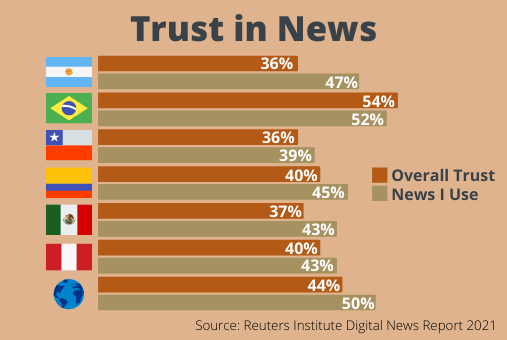
Globally, trust in the news grew six percentage points and reached 44 percent, according to the 2021 Digital News Report, by the Reuters Institute. In the six Latin American countries investigated, however, general trust in the news is lower, reaching an average of 40.5 percent. In the region, confidence is lowest in Argentina and Chile (36%) and highest in Brazil (54%).
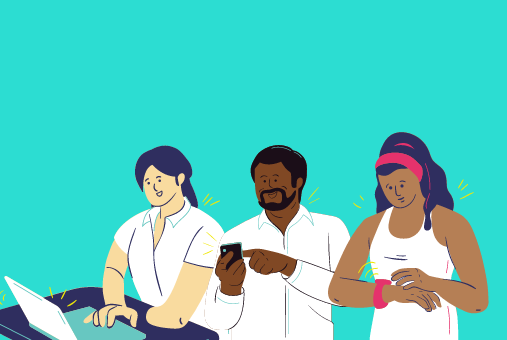
According to Summer Harlow, University of Houston associate professor of journalism and author of the study, the survey suggests a new understanding of the concept of objectivity, as something that does not oppose or prevent journalists from defending causes or participating in protests.
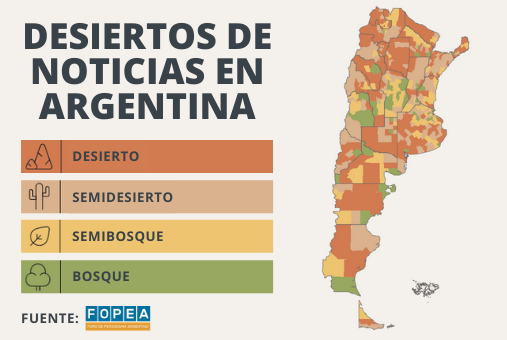
6,600,000 Argentines, equivalent to 16.7 percent of the population, live in places where there is no independent press outlet, that is, in news deserts, according to a study by FOPEA.
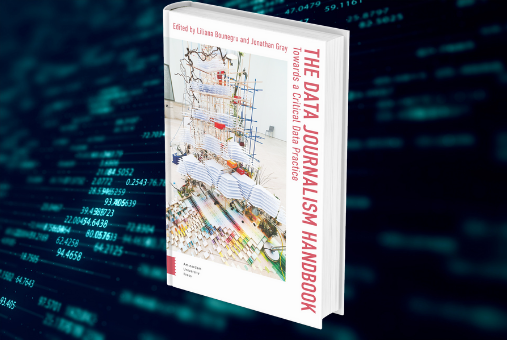
“The Data Journalism Handbook: Towards A Critical Data Practice” provides a critical assessment of data journalism itself, nine years after the release of the first book in the series. Latin America is represented in eight chapters, with investigations into the agricultural industry, mapping of trees in urban capitals and large-scale analysis of wiretapping.

Researchers from the Southern Hemisphere often do not have space in prestigious journals to submit their research. The UK-based journal Digital Journalism, one of the most reputable in the discipline, recently published Volume 9 with a special issue on Latin America, with articles by Latin American journalists and researchers.

A total of 138 young people between the ages of 18 and 35, responded to surveys for a study by CIMA, to inquire about news consumption habits and new technologies in young audiences in low- and middle-income countries like Mexico and Colombia.
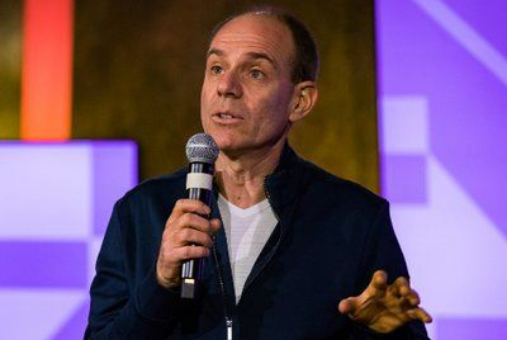
Pablo J. Boczkowski has dedicated himself in recent years to understanding what it means, for the individual and for societies, to live in a period of "qualitative leap in the amount of information.” Read LJR's interview with Boczkowski.